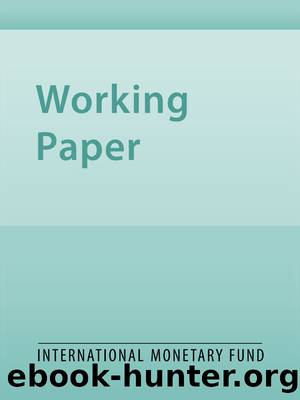Responding to Banking Crises: Lessons from Cross-Country Evidence by Enrica Detragiache; Giang Ho

Author:Enrica Detragiache; Giang Ho
Language: eng
Format: epub
ISBN: 9781452708683
Publisher: International Monetary Fund
Published: 2010-08-15T00:00:00+00:00
B. Comparison with Other Results in the Literature
How do our findings relate to those in previous studies of banking crises? To our knowledge, this is the first study to consider crisis containment and resolution policies from the perspective of the potential burden they impose on taxpayers, as well as the first to carefully address the endogeneity of the policy response.
Honohan and Klingebiel (2003) use a sample of 38 crisis episodes (which does not fully coincide with the LV one) and focus primarily on the fiscal cost of the crisis. The main finding is that liquidity support, more extensive forbearance by regulators, and the extension of guarantees to bank depositors are associated with higher fiscal costs, while other policies have no significant relationship. The authors conclude that more âaccommodativeâ policies tend to make banking crises costlier. Our study differs in some key aspects from Honohan and Klingebiel (2003): first, our crisis and policy intervention sample is somewhat different, as it is based on LV. Second, our main interest is in the economic performance during the crisis, not in the fiscal cost of the crisis. Third, we differentiate among policies based on their financial risk to the government. Fourth, we carefully instrument the policy variable to rule out endogeneity bias.
Claessens, Klingebiel, and Laeven (2005) explore the relationship between intervention policies and the economic and fiscal costs of crises. Costs are measured by the output loss relative to trend during the crisis episode. The main finding is that policies that support the banking system do not seem to reduce the output cost of banking crises, while good institutions, captured by an index of overall quality of institutions, an index of corruption, and an index of judicial efficiency, tend to have a positive effect.
In a recent paper, Cecchetti, Kohler, and Upper (2009) consider possible determinants of crisis performance. Concerning banking sector policies, the paper finds the use of an AMC is associated with longer crises, while a policy of forbearance is associated with larger output losses. The paper does not discuss the robustness of these results, the role of other policy measures, or possible endogeneity bias.
Download
This site does not store any files on its server. We only index and link to content provided by other sites. Please contact the content providers to delete copyright contents if any and email us, we'll remove relevant links or contents immediately.
The Borden Murders by Sarah Miller(4021)
The Secret Barrister by The Secret Barrister(3424)
Coroner's Journal by Louis Cataldie(2361)
Police Exams Prep 2018-2019 by Kaplan Test Prep(2359)
The Splendid and the Vile by Erik Larson(2230)
Terrorist Cop by Mordecai Dzikansky & ROBERT SLATER(1965)
My Dark Places by James Ellroy(1805)
A Colony in a Nation by Chris Hayes(1797)
Black Klansman by Ron Stallworth(1705)
The Art of Flight by unknow(1695)
A Life of Crime by Harry Ognall(1596)
Objection! by Nancy Grace(1570)
The New Jim Crow by Michelle Alexander(1549)
Whoever Fights Monsters by Robert K. Ressler(1536)
Anatomy of Injustice by Raymond Bonner(1530)
Invisible Women by Caroline Criado Perez;(1520)
Obsession (The Volkov Mafia Series Book 1) by S.E Foster(1496)
American Prison by Shane Bauer(1481)
A is for Arsenic: The Poisons of Agatha Christie (Bloomsbury Sigma) by Kathryn Harkup(1457)
